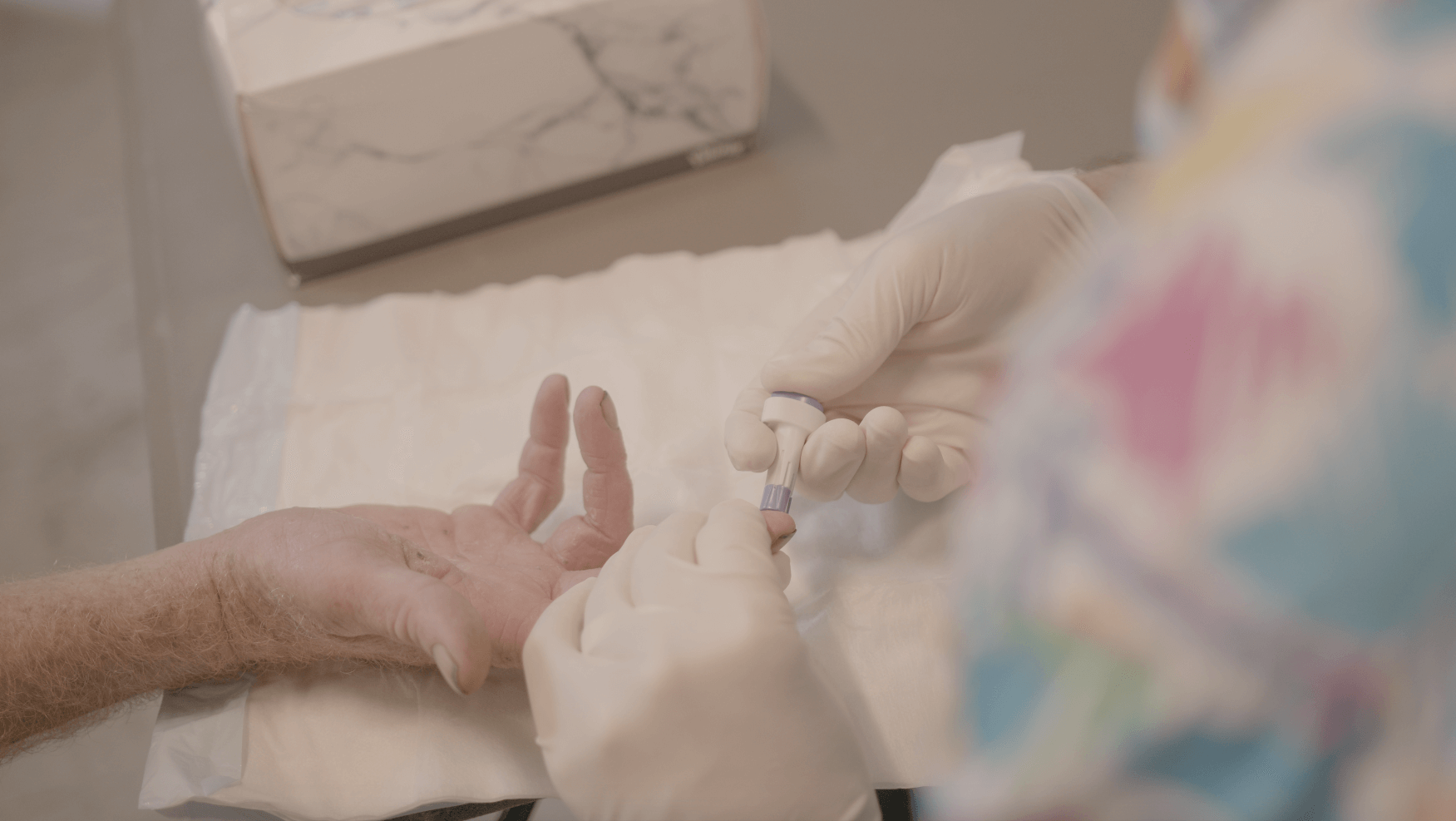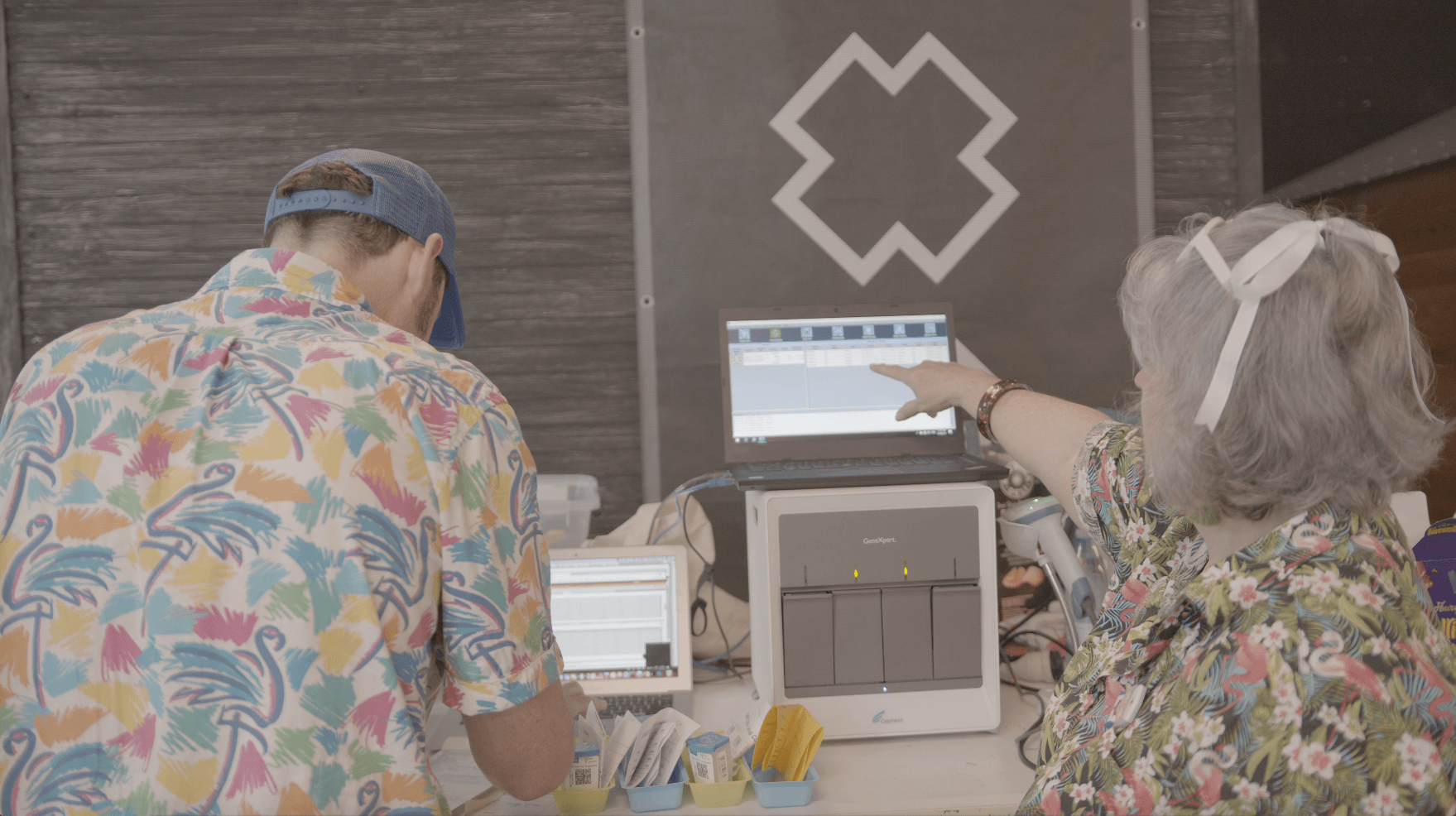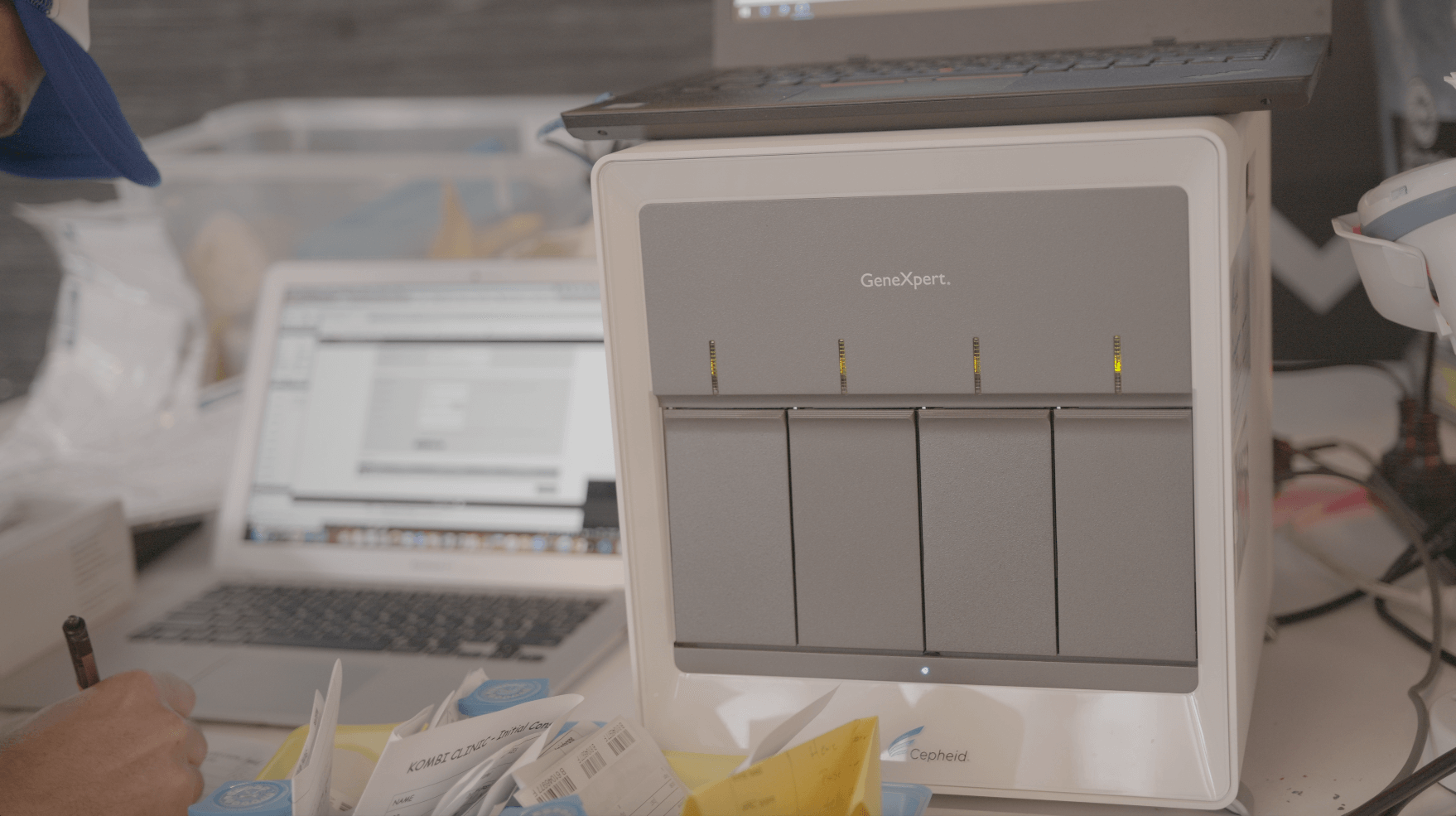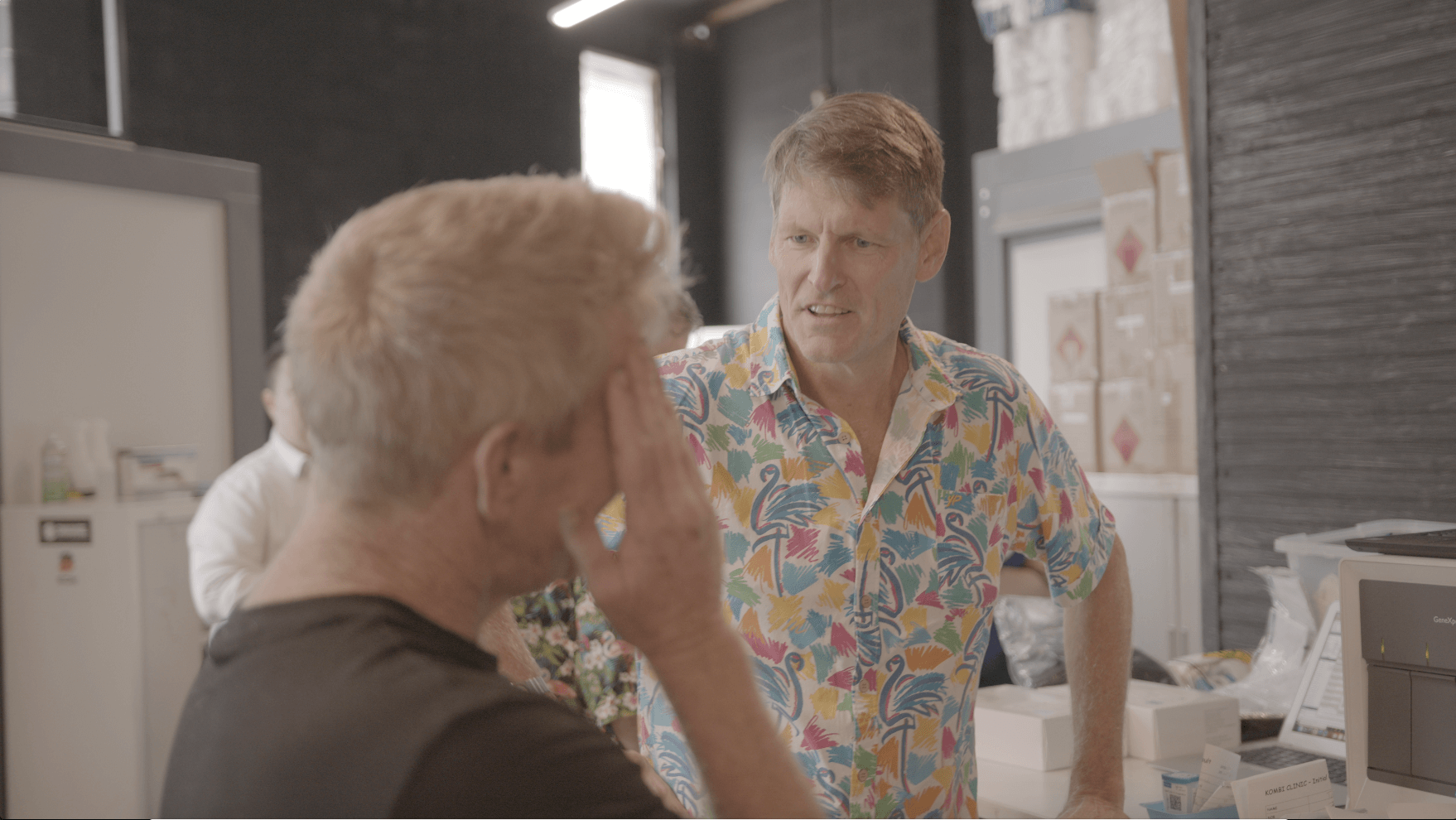
The Kombi Clinic were delighted to have digital content up their sleeve to be able to showcase what their mobile outreach clinic does and the world-class technology that they use to support patients. This type of video storytelling was a first for Cepheid. For our team, it was a one-of-a-kind project. We have frequently supported healthcare clients with this type of human-interest video, but less so for the diagnostics industry as finding those stories can be more challenging. Diagnostics companies can be more creative when it comes to their communications. It’s not all about whitepapers and brochures, but showing the patient-centric benefits of their technology.
Digital content can be an opportunity to tell a story about how your technology helps real people, instead of creating another 1-pager outlining the product features. It is all about patient centricity nowadays.
We worked with Cepheid to support them with creating digital content for their world-renowned point-of-care system, the GeneXpert. The focus was not to be on the technology itself, but on the end users and patients experiencing the product. The company was adamant that their social media content should stand out from competitors.
If the content is not emotive or captivating, there is a risk of losing potential customers at the awareness stage of the buyer’s journey. Companies need to show how they are collaborating with healthcare professionals and patients.

The challenge is coming up with the right story to tell. This is where healthcare professional partners come in handy. They are meeting patients and witnessing the impact of the technology first-hand.
For Cepheid, the digital content would focus on their partner Kombi Clinic, a Brisbane-based mobile outreach clinic that provides hepatitis C screening services to people on the margins of society. They travel to prisons and homeless shelters on a weekly basis to test people for the virus. The story alone is compelling enough.


Then, we needed to translate this story into digital content that Cepheid could use on their social channels. Luckily, the Kombi Clinic is a very visual bunch with colourful uniforms and a yellow Kombi van, so this made the decision simple. Video storytelling was well-suited to this project. Video storytelling conveys emotion and information, whilst being an opportunity to demonstrate how the diagnostics company’s technology works and looks. The benefit of filming projects is that the rushes captured during a full day of filming can be repurposed into many different edits, long or short. This increases the return-on-investment, and gives the project more longevity. The filming took place over a full day. We captured the Kombi Clinic caring for patients at one of the homeless shelters they visit regularly. The team used the GeneXpert to test dozens of individuals for hepatitis C, and were even able to tell some that they had been cured after being on treatment. Very little input from our team was required to demonstrate just how impactful point-of-care testing for hepatitis C is for these people with no fixed address. We were lucky to be able to interview one of the people visiting the shelter for a bot meal, who provided a testimonial on why the point-of-care method was much better than traditional phlebotomy. Several video outputs were created with the footage, including some short edits for World Hepatitis Day and a conference. The longest edit was subsequently released on LinkedIn, Twitter, Facebook and Instagram by Cepheid and Kombi Clinic at a planned date to maximise buzz.